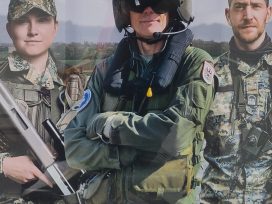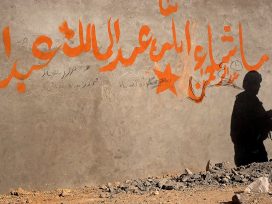Struggling to find an angle
When covering the invasion of Crimea and the war in Donbas, what motivated Nataliya Gumenyuk was her conviction that journalism could influence events. But now that geopolitics rules the day, she feels powerless.
Despite the ‘promise’ of the Russian deputy foreign minister Ryabkov that ‘Russia won’t invade’, more than 100,000 Russian troops are still at the Ukrainian border. The Kremlin demands from the US and NATO a cast-iron guarantee that former Soviet states will not be admitted to NATO, as if to pretend that the alliance’s enlargement didn’t take place in Eastern Europe after 1997.
I follow the news of the talks in Geneva and Brussels, I’m in touch with the reporters in DC and Moscow, and with officials in Kyiv, at Ukrainian military headquarters, and in the Donbas – including the non-government controlled territories. I provide necessary contacts and advice to foreign colleagues, answer their calls, give interviews on what the West can do to support Ukraine (mainly prepare even stronger sanctions), and guide them on the relevant destinations in the conflict zone.
Yet as a Ukrainian journalist, I have never felt as powerless when it comes to my own reporting on the war in my country. As journalists, we don’t have as much impact on policy as we used to. We ought to look at the options on how to avoid war. This time it’s hard to find any from the Ukrainian side. Ukraine’s fate is out of its hands, as Russian demands are not directed to Ukraine.
The human side of conflict
When Russian troops occupied Crimea eight years ago, I rushed from the Kyiv Maidan, where the popular uprising had just toppled the corrupt authoritarian president, to follow the movements of the ‘little green men’ in the peninsula, to identify them, and talk to the people participating in the sham ‘referendum’. My goal was clear – to understand what was happening on the ground so that Ukrainians, Russians, and the world could make their judgements and decisions based on facts.
When in spring 2014 the military assault started in the Donbas – at that time not yet fully controlled by the separatists – I was there to discuss their motives, and also to show that the majority of the people didn’t want the war. Even if we couldn’t stop the conflict, we should at least help the civilians.
I kept on reporting this war, which has already taken the lives of 14,000 people. No matter what the Kremlin wants to happen in the Donbas, I always insisted: there are still things that depend on us. If the Ukrainian government makes a mistake – like not paying pensions to the residents of the separatist territories, explaining it’s impossible – I’d prove there is a way, and explain to the politicians why the decision is damaging in the long run. In case of unfairness, neglect or maltreatment, I’d ring the bell to draw attention to this war-torn place most people no longer care about.
This was also the knowledge I passed on when teaching classes on how to report on conflicts. I would stress: there is always a human angle to the story, even if the war looks like a fight between political forces, there is a place for us to influence something.
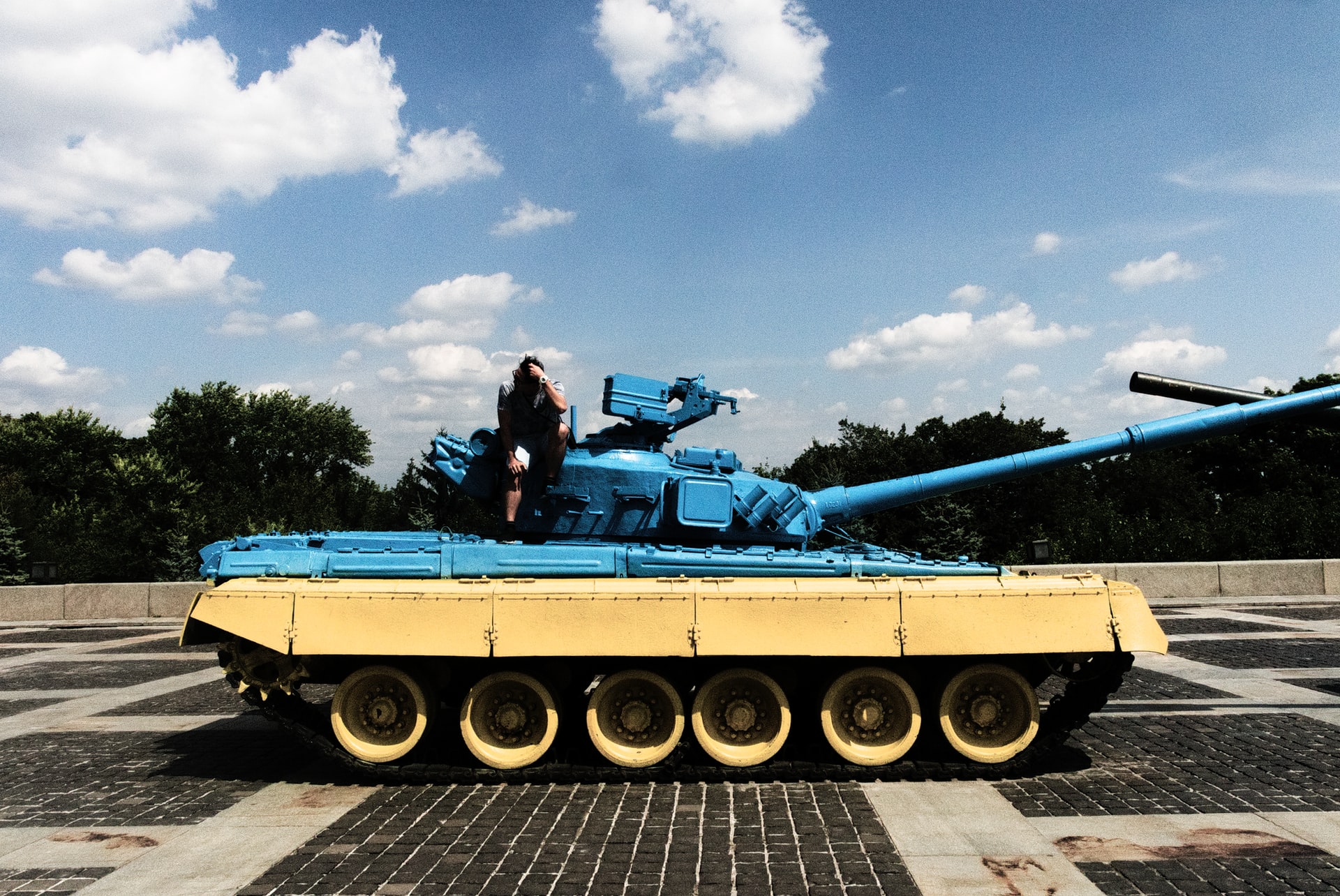
Photo by Chester Ho on Unsplash
Early into the new year of 2022, satellites identified more than 100,000 Russian troops at the Ukrainian border and the Russian MOD announced new military exercises nearby right after the talks in Geneva. Reading between the lines of Russian statesmen and observing their rhetoric becoming tougher and more categorical, we know it’s not a bluff, or testing the ground. Such testing took place in Spring 2021 when Putin used the escalation to meet his US counterpart Biden. So in these circumstances, I struggle to see how my reporting would matter.
Taking the usual laps
Of course, we can go to the frontline, where sporadic shelling has been ongoing in the past years as the ceasefire doesn’t hold. We may interview the local population, who’ll share their grievances and express confusion about what makes this moment special. For them it’s just another threat and they are used to those.
We can talk to the Ukrainian military commanders (former and current) to check how ready they are. They assure us that the army is on alert. If the story is aimed at a western audience, they will even list the equipment the Ukrainian troops need to defend the country.
Those responsible for the defence will demonstrate their preparation. The military experts will confidently say that after eight years of war, a considerable amount of the Ukrainian military have combat experience, more than in any other European country. So, contrary to 2014, the army is capable, the morale is high and government leadership is strong and united. We can check whether this is the case by talking to officers and conscripts and reconfirm that the army is loyal to the state.
Talking to the residents of the towns on the Russian-Ukrainian border or to Kyivites, we may learn that they do not panic, but instead express ‘grim optimism’, which means that even if ‘the worst happens’, the whole country won’t be invaded, resistance would be strong, and the costs for the Kremlin would be high. Yet still they don’t imagine exactly what the real war with airstrikes and shelling would be like – as most people didn’t experience it as residents of the Donbas in 2014–2015.
Reaching out to the diplomats either based in Kyiv or DC and Brussels, we’d learn that nothing is clear, the threat is real, the situation is different, the West is on the Ukrainian side, support would be given even if outside of NATO.
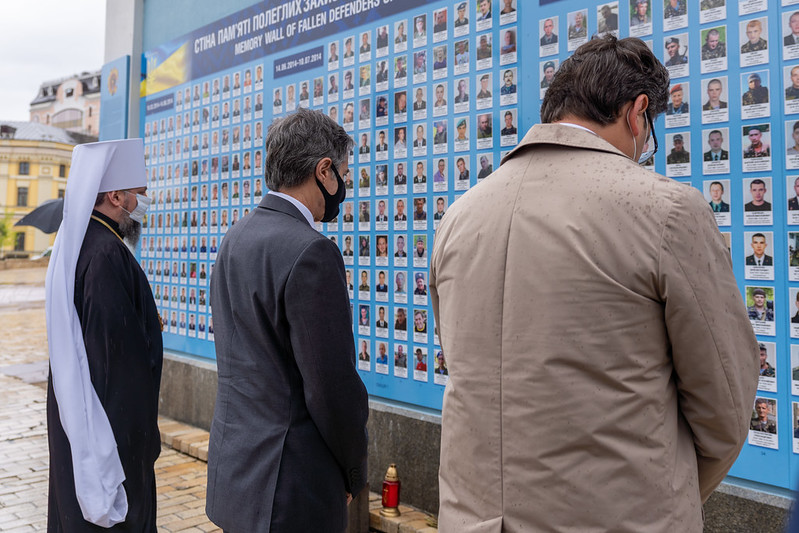
U.S. Secretary of State Antony J. Blinken visits Kyiv, Ukraine on 6 May 2021. Photo by the U.S. Embassy in Kyiv on Flickr. State Department photo by Ron Przysucha/ Public Domain.
For sure, we can explain to our audience the results of the numerous talks. We can observe whether the Ukrainian diplomats are doing enough to keep the allies united, explain what concrete support would be efficient, and advocate for strong and adequate sanctions.
While NATO is concerned about not provoking Russia – which suits Moscow –, it’s critical to ensure the support of the individual members. And we can of course explain what NATO is, to our local audience. According to the polls, the support to join the North Atlantic Treaty keeps growing and is the highest since 2014 with 54 percent wanting to be part of it. Yet, this is not something that can have an immediate effect today.
Many red lines crossed
I consider that it could be helpful to hear more from Moscow. My contacts would sound grimmer and more pessimistic than before, which would be discouraging. Since the arrest of anti-corruption activist Alexey Navalny in January 2021, Russia has changed a lot and many more red lines have been crossed.
The assault on the independent media and NGOs, the crackdown on the remnants of the opposition, with activists forced into exile – the situation is worse than it has ever been since 1991. Those opposing the government are officially named foreign agents. Since the pandemic started, the FSB and military have totally dominated Putin’s inner circle. Pragmatists who argued for ‘business as usual’ with the West for the sake of the economy, were removed. So now the Kremlin is unanimous in wanting to regain its position in charge of the former Warsaw Pact territories.
During the US-Russia or NATO-Russia negotiations, the media may look for and highlight possible points for compromise. But the Kremlin’s demands are now fictional, and at this point, not even about Ukraine any more. Moscow wants to roll back history and ignore the will of the 11 nations which joined NATO since 1997. Those countries are already used to a different order, have developed capacities and received guarantees to secure themselves or be protected in case of a threat. Why would they change their mind when being threatened?
The Russian international affairs analyst Vladimir Frolov wrote that the aim is to return to the early 1970s, ‘before the Soviet Union joined the Helsinki Act, which is now considered a big mistake’. It was then that the USSR allowed the West to demand the protection of human rights. Today, Russia does not want to accept any such demands from the West towards Russia or any other countries in its ‘sphere of influence’.
For years the West treated Russia as an equal, as one of many. But the current leadership in Moscow wants to be treated as superior. This contradicts the idea of a modern democracy.
Maddening anticipation
With nothing yet happening on the ground, there’s nothing I can report, nothing new and impactful. We are caught in the position of waiting for the ‘worst case scenario’ without a chance to influence the outcome. The possible incursion has become pure geopolitics.
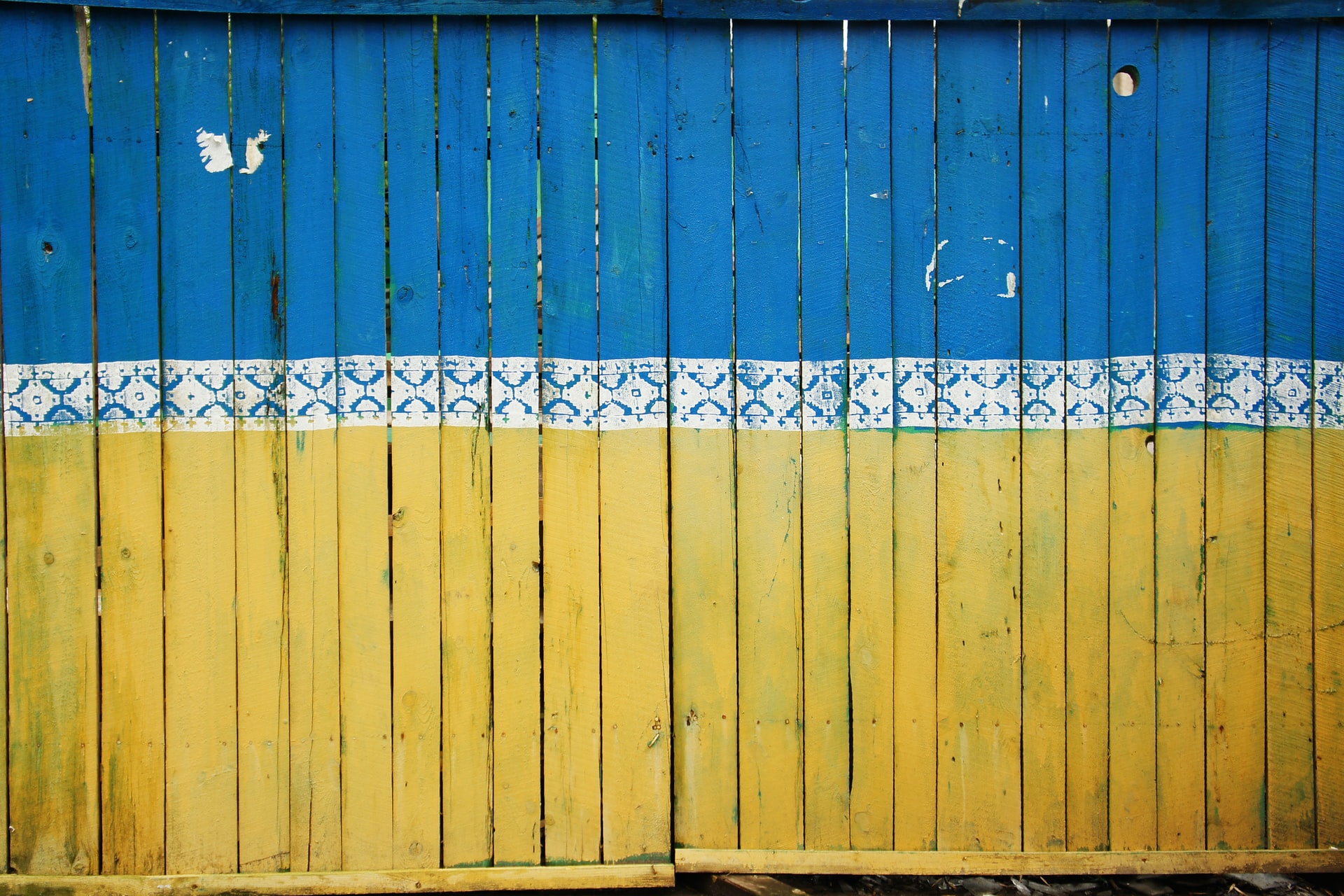
Photo by Tina Hartung on Unsplash
Of course, in the case of every escalation, there is a risk that emotions run too high. As in Chekhov’s phrase, ‘If in the first act you have hung a pistol on the wall, then in the following one it should be fired’, so in the case of 100 000 ‘guns’ on the border, the risk of provocation is very present.
As conflict reporters we are trained to distinguish between the real threat and the political incentives for the war. This time I am listening carefully and can confirm that we do not hear drums of war from Kyiv. Conversely, in many cases international leaders can calm down local governments and urge them not to match provocations – for example the German foreign minister thanked the Ukrainian authorities for being restrained. This peace process has had questionable success so far, but arguably, the Zelensky government differs from its predecessor in maintaining the idea that negotiations are possible.
Without any response from Moscow’s side, humanitarian policies have been changed gradually since 2019. This has been praised by Ukraine’s European partners. There has been a softening of tone and government attempts to re-connect with the Ukrainians who live in the non-government territories – for example through the reconstruction of a bridge in the Luhansk region, the building of more convenient facilities at check-points, the cancellation of some discriminatory norms adopted during the most critical moments of the conflict, and even the design of the online services aimed at the residents of the Donbas. The Ministry for Temporary Occupied Territories was replaced by the Ministry for Reintegration.
Asking a foreign diplomat about whether Ukraine can do anything to facilitate de-escalation or negotiation with Russia, I’d receive an answer: ‘No, there is nothing more the government could do. At this stage any attempt to be creative or propose a way out is dismissed – even the small things like opening another Christmas check-point’.
At the ready but hoping for better
We, conflict reporters who care, don’t need to persuade those who already agree that if conflict can be avoided then it should be. There is little Kyiv can do to de-escalate, since it has been already de-escalating for the last two years. Among the military, mainstream politicians, and citizens in different corners of the country, there is no big ‘war camp’ which wants full-scale warfare with Russia. Defence is the only reason to fight.
And if we want to search for weak points in the defence – and they do exist – it’s not a matter of leadership or morale, but capabilities. Ukraine doesn’t have a strong navy or air force. The former Minister of Defence Zagorodnyuk explains that the authorities are not naive, they know it’s costly, but that there are ‘portable air defence systems, anti-tank missiles, anti-ship missiles, and counter-battery radars, as well as drones of all kinds’, which could help.
But even if Ukraine is attacked and its infrastructure and economy harmed, it’s hard to see any other option but resistance. Despite ugly and divisive political battles, the feeling in Kyiv is that a foreign invasion will unite enemies.
For the whole of my career reporting popular uprisings – from the 2004 Orange Revolution to the Maidan in 2014, from Tahrir Square in Cairo to the streets of Minsk – I told the stories that showed that people do matter, human security is the key, that not everything is decided by the great powers.

Demonstrators called for supporting Ukraine already in 2014. Photo from Munich by blu-news.org, CC BY-SA 2.0, via Wikimedia Commons
This time I also know when the people will matter.
If the geopolitical talks fail to achieve something, it’s the people, the residents of Ukrainian towns, the Ukrainian military, who will pay the price. It’ll be their suffering we need to document. And our job will have some meaning again. Unfortunately. If Russia attacks, its fate will be back in the hands of Ukraine, which will defend itself. But it’s not the outcome we want to have and test.
So, could it be the case that nothing depends on us when it comes to lobbying for prevention? Are we capable of just postponing the deadline of ‘the assault’ from one summit to another, or until the start of the Winter Olympics in China – taking after 2008 when Russia attacked Georgia as the games were launched?
At this stage, with all the experience, knowledge, connections built over the years, the determination and compassion, and even this grim optimism, I struggle but can only admit how hard it is to see what Ukrainian journalists can do to influence policy as we used to. It’s hard to find a meaningful new angle, a different opinion, which can show a positive way forward.
In explaining the fact that the story is about Ukraine, the threat is to Ukraine, but little is happening in Ukraine – telling all this to western colleagues who either come to Kyiv or are calling to report on the escalation in the time-honoured manner of listening to the people on the ground, I feel partially paralysed. Yet I am also worried.
Is there a risk that by showing ‘human stories’ where they are not happening yet – by asking people how worried they are and how they will prepare for the escalation – we entrench the idea of the inevitability of the big war, and thereby normalise something which a few months ago sounded absurd and of no benefit to either side?
In collaboration with
In focal points
- Not epistemic enough to be discussed
- Another lost generation of art?
- A trace of Russia at the heart of Austria
- What makes a humanist kill?
- Something happens, somewhere
- Vertical occupation
- No longer a footnote
- The Ides of March
- Counteroffensive exhibitions
- No peace without freedom, no justice without law
Newsletter
Subscribe to know what’s worth thinking about.
Related Articles

For those who suffered the consequences of Yalta’s division of Europe, the Helsinki Final Act brought grounds for optimism. Today, as Russia’s regressive war on Ukraine reopens old conflicts, it stands as a monument to European modernity.
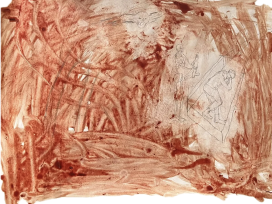
Artist Marharyta Polovinko’s creativity persisted in a tormented form through her experiences as a soldier on the Ukrainian frontline. The words of a recently called-up fellow creative and young family man provide a stark reminder that the Ukrainian military is buying Europeans time.




